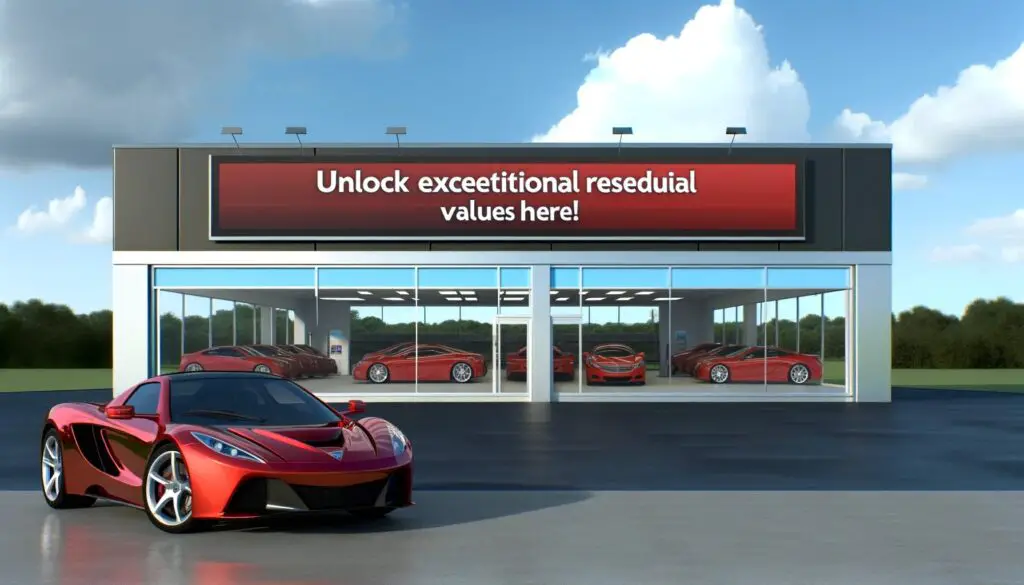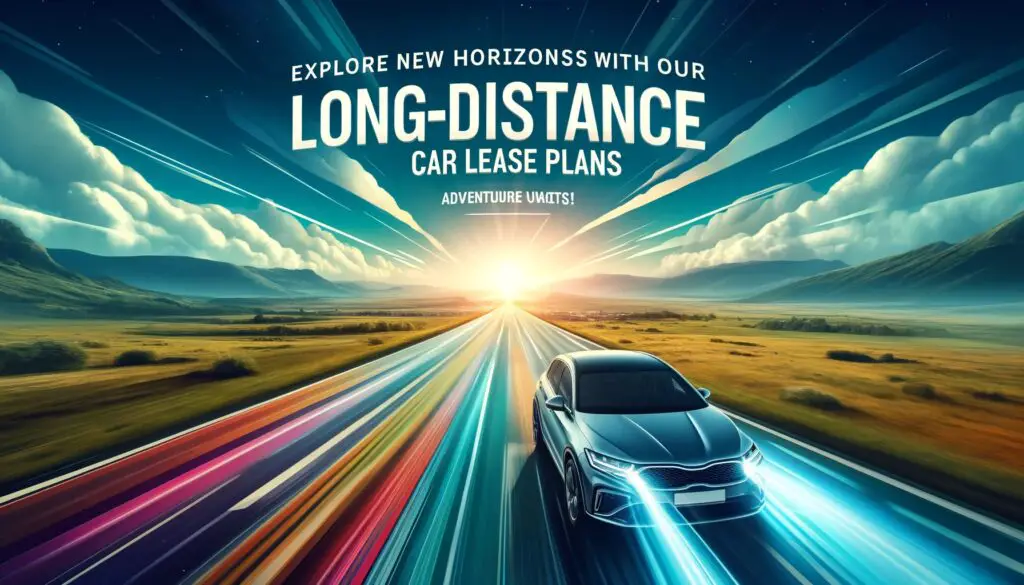In the ever-evolving landscape of automotive industry, car leasing stands as a versatile option for individuals and businesses alike. It offers flexibility, affordability, and access to the latest vehicle models without the commitment of ownership. In this article, we delve into the emerging trends reshaping the future of car leasing in 2024.
Shift Towards Electric Vehicles (EVs) in Leasing
Growing Popularity of Electric Vehicles
Electric vehicles (EVs) have witnessed a surge in popularity owing to their eco-friendly nature and technological advancements. As environmental consciousness continues to rise, consumers are increasingly opting for EVs, driving a significant shift in the leasing market.
Advantages of Leasing EVs
Leasing EVs presents several advantages, including lower maintenance costs and environmental benefits. With fewer moving parts compared to traditional combustion engine vehicles, EVs require less maintenance, translating to reduced operational expenses for lessees. Furthermore, the environmental advantages of EVs, such as zero emissions and reduced carbon footprint, align with the sustainability goals of both consumers and businesses.
Challenges and Considerations for EV Leasing
Despite the benefits, EV leasing comes with its set of challenges and considerations. Factors such as range anxiety, charging infrastructure, and depreciation rates may influence leasing decisions. However, advancements in battery technology and infrastructure development are mitigating these challenges, making EV leasing a viable and appealing option for consumers.
Personalization and Customization Options
Demand for Personalized Leasing Experiences
In the era of personalization, consumers seek tailored experiences in every aspect of their lives, including car leasing. The demand for personalized leasing experiences has prompted leasing companies to offer customizable options to cater to individual preferences and lifestyles.
Customization Trends in Car Leasing
Car leasing now extends beyond selecting a model and trim level. Lessees can personalize their vehicles with a myriad of options, including interior finishes, exterior colors, and technology upgrades. This customization enhances the leasing experience, allowing individuals to express their style and preferences through their leased vehicles.
Subscription-Based Leasing Models
Rise of Subscription-Based Car Leasing
The emergence of subscription-based car leasing models offers consumers greater flexibility and convenience in accessing vehicles. Unlike traditional leases with fixed terms, subscription models allow for shorter commitments and often include additional services such as maintenance and insurance.
Flexibility and Convenience for Consumers
Subscription-based leasing provides consumers with the freedom to switch between vehicles according to their changing needs and preferences. With flexible terms and hassle-free processes, these models appeal to individuals seeking convenience and a hassle-free car ownership experience.
Comparison with Traditional Leasing Models
While traditional leasing models remain prevalent, subscription-based models are gaining traction among urban dwellers and tech-savvy consumers. The ability to access a variety of vehicles without long-term commitments resonates with the evolving lifestyles of modern consumers.
Integration of Advanced Technology
Role of Technology in Shaping Leasing Trends
Technology plays a pivotal role in shaping the future of car leasing, with advancements in AI, machine learning, and in-car connectivity driving innovation. These technological integrations enhance the driving experience, improve safety, and streamline operational processes for both lessors and lessees.
Impact of AI and Machine Learning
AI-powered algorithms are revolutionizing lease management and customer service by analyzing data patterns, predicting consumer behavior, and optimizing leasing strategies. Machine learning algorithms enable personalized recommendations and tailored leasing offers based on individual preferences and usage patterns.
In-Car Connectivity Features
Modern vehicles are equipped with advanced infotainment systems and autonomous driving capabilities, transforming the driving experience and increasing demand for technologically sophisticated leased vehicles. In-car connectivity features provide seamless integration with smartphones, navigation systems, and entertainment options, enhancing convenience and comfort for lessees.
Sustainable and Eco-Friendly Leasing Practices
Importance of Sustainability in the Automotive Industry
The automotive industry is undergoing a paradigm shift towards sustainability, with consumers increasingly prioritizing eco-friendly options. Leasing companies are responding to this demand by offering sustainable leasing practices and eco-friendly vehicle options.
Eco-Friendly Leasing Options
Hybrid vehicles and carbon offset programs are gaining traction in the leasing market, providing consumers with environmentally conscious alternatives to traditional combustion engine vehicles. These initiatives reduce carbon emissions and promote environmental stewardship among lessees.
Consumer Demand for Green Initiatives
Consumer awareness and advocacy for sustainability are driving the adoption of green leasing practices. Leasing companies that prioritize environmental sustainability and corporate social responsibility are poised to attract and retain environmentally conscious consumers.
Expansion of Peer-to-Peer Leasing Platforms
Growth of Peer-to-Peer Car Leasing Platforms
Peer-to-peer car leasing platforms are disrupting the traditional leasing model by connecting vehicle owners with individuals seeking short-term rentals. These platforms offer a cost-effective alternative to traditional car rental services while providing owners with an additional income stream.
Benefits for Both Owners and Renters
Peer-to-peer leasing platforms benefit both vehicle owners and renters. Owners can monetize their idle vehicles, offsetting ownership costs, while renters gain access to a diverse range of vehicles at competitive prices, often with added flexibility and convenience.
Regulatory Challenges and Compliance Issues
The growth of peer-to-peer leasing platforms presents regulatory challenges and compliance issues, particularly concerning insurance coverage, liability, and taxation. Leasing companies must navigate these legal complexities to ensure compliance with local regulations and protect the interests of both lessors and lessees.
Leasing for Short-Term Mobility Solutions
Rise of Short-Term Leasing Options
Urbanization and shifting consumer preferences have fueled the demand for short-term mobility solutions, such as car sharing and micro-leasing. These options cater to individuals seeking on-demand access to vehicles for specific durations or occasions, without the commitment of long-term leases.
Demand from Urban Dwellers and Millennials
Urban dwellers and millennials, in particular, are driving the demand for short-term leasing options due to their transient lifestyles and aversion to long-term commitments. The flexibility and affordability of short-term leases appeal to individuals residing in densely populated areas with robust public transportation networks.
Impact on Traditional Car Ownership Models
The rise of short-term leasing options challenges traditional car ownership models by offering a more cost-effective and convenient alternative. As consumers increasingly prioritize access over ownership, car leasing companies must adapt their business models to cater to evolving mobility preferences.
Importance of Digitalization and Online Platforms
Digital Transformation in the Leasing Industry
The digital transformation of the leasing industry has revolutionized the way consumers research, compare, and lease vehicles. Online platforms and marketplaces provide consumers with convenient access to a wide selection of vehicles, lease terms, and pricing options, streamlining the leasing process.
Online Leasing Platforms and Marketplaces
Online leasing platforms and marketplaces have democratized access to leasing opportunities, empowering consumers to make informed decisions from the comfort of their homes. These digital platforms offer transparent pricing, detailed vehicle specifications, and convenient lease application processes, eliminating the need for in-person visits to traditional dealerships.
Streamlining the Leasing Process through Digital Tools
Digital tools and technologies streamline the leasing process, from vehicle selection to contract signing and delivery. Virtual showrooms, 360-degree vehicle tours, and online chat support enable consumers to explore leasing options and interact with leasing agents remotely, saving time and enhancing convenience.
Shift Towards Contactless Leasing Processes
Adoption of Contactless Leasing due to the Pandemic
The COVID-19 pandemic has accelerated the adoption of contactless leasing processes, prioritizing health and safety precautions. Contactless transactions, digital document signing, and remote vehicle delivery options minimize physical interactions and reduce the risk of virus transmission, reassuring consumers during uncertain times.
Continued Preference for Digital Transactions
Even as the pandemic subsides, consumers continue to prefer digital transactions and contactless interactions when leasing vehicles. The convenience, efficiency, and safety offered by contactless leasing processes have become ingrained in consumer preferences, shaping the future of leasing transactions.
Enhanced Safety and Convenience for Consumers
Contactless leasing processes not only enhance safety but also offer unparalleled convenience for consumers. By eliminating the need for in-person visits to dealerships and paperwork exchanges, contactless transactions streamline the leasing experience, allowing consumers to complete transactions on their terms and schedule.
Impact of Autonomous Vehicles on Leasing
Introduction of Autonomous Vehicles into Leasing Fleets
The advent of autonomous vehicles (AVs) is poised to revolutionize the leasing industry, offering new opportunities and challenges for leasing companies. As AV technology matures and gains regulatory approval, leasing companies are exploring the integration of autonomous vehicles into their fleets to meet evolving consumer demands.
Potential Benefits and Challenges
Autonomous vehicles offer several potential benefits for leasing companies and consumers, including increased safety, enhanced mobility access, and improved operational efficiency. However, challenges such as regulatory hurdles, technological limitations, and consumer acceptance may hinder the widespread adoption of AV leasing in the near term.
Consumer Acceptance and Adoption
Consumer acceptance and adoption of autonomous vehicles will play a crucial role in shaping the future of AV leasing. While early adopters may embrace the convenience and novelty of AV technology, widespread adoption hinges on factors such as affordability, reliability, and trust in autonomous systems.
Collaborations and Partnerships in the Leasing Industry
Collaborative Efforts between Leasing Companies and Manufacturers
Collaborations between leasing companies and vehicle manufacturers are driving innovation and expanding leasing opportunities. Strategic partnerships enable leasing companies to access exclusive vehicle models, preferential pricing, and co-branded leasing programs, enhancing their competitive edge in the market.
Partnerships with Technology Firms
Partnerships with technology firms enable leasing companies to leverage cutting-edge solutions and digital platforms to enhance the leasing experience. By integrating AI, data analytics, and automation technologies, leasing companies can optimize operations, personalize offerings, and deliver superior customer service.
Joint Ventures to Develop Innovative Leasing Solutions
Joint ventures and strategic alliances between leasing companies, technology firms, and financial institutions facilitate the development of innovative leasing solutions. By pooling resources, expertise, and market insights, partners can address emerging trends, seize growth opportunities, and stay ahead of the competition in a rapidly evolving industry.
Understanding Consumer Preferences and Behavior
Importance of Consumer Insights in Shaping Leasing Strategies
Understanding consumer preferences and behavior is critical for leasing companies to develop targeted leasing strategies and tailored offerings. Market research, data analytics, and consumer feedback mechanisms provide valuable insights into consumer preferences, trends, and pain points, enabling leasing companies to anticipate and address evolving needs.
Market Research and Analysis
Market research and analysis enable leasing companies to identify market trends, competitive dynamics, and emerging opportunities. By analyzing demographic shifts, socio-economic trends, and consumer behavior patterns, leasing companies can tailor their leasing offerings to target specific market segments and capitalize on growth opportunities.
Tailoring Leasing Offers to Meet Consumer Needs
Tailoring leasing offers to meet consumer needs requires a deep understanding of customer preferences, lifestyle preferences, and financial considerations. By offering flexible lease terms, customizable options, and value-added services, leasing companies can attract and retain customers, driving long-term loyalty and profitability.
Addressing Challenges in Car Leasing
Common Challenges Faced by Leasing Companies
Leasing companies face a myriad of challenges, including market volatility, regulatory compliance, and changing consumer preferences. Economic downturns, supply chain disruptions, and technological disruptions further compound these challenges, requiring leasing companies to adopt agile strategies and proactive risk management approaches.
Strategies to Overcome Leasing Obstacles
To overcome leasing obstacles, leasing companies must prioritize innovation, flexibility, and customer-centricity in their business operations. By diversifying their leasing portfolios, optimizing operational processes, and investing in digital transformation initiatives, leasing companies can mitigate risks, seize opportunities, and thrive in a competitive market environment.
Risk Management and Mitigation Techniques
Effective risk management and mitigation techniques are essential for leasing companies to navigate uncertain market conditions and minimize potential losses. Risk assessment, scenario planning, and insurance coverage help leasing companies identify, assess, and mitigate risks related to credit, market, and operational factors, safeguarding their financial stability and reputation.
Future Regulatory Landscape for Car Leasing
Impact of Changing Regulations on Leasing Industry
The regulatory landscape for car leasing is constantly evolving, influenced by factors such as environmental regulations, consumer protection laws, and industry standards. Changes in tax policies, emissions standards, and data privacy regulations can have significant implications for leasing companies, requiring them to stay abreast of regulatory developments and adapt their business practices accordingly.
Compliance Requirements for Leasing Companies
Compliance with regulatory requirements is paramount for leasing companies to maintain operational integrity and consumer trust. Lease agreements, advertising practices, and data handling procedures must comply with relevant laws and regulations to avoid legal liabilities and regulatory penalties.
Anticipated Legislative Changes
Anticipating legislative changes and proactively addressing compliance requirements are essential for leasing companies to mitigate regulatory risks and capitalize on emerging opportunities. By monitoring legislative developments, engaging with industry associations, and collaborating with legal advisors, leasing companies can navigate regulatory challenges and position themselves for long-term success in a dynamic regulatory environment.
Sustainability Initiatives and Corporate Social Responsibility
Corporate Responsibility in the Leasing Sector
Corporate social responsibility (CSR) is increasingly important in the leasing sector, with consumers, investors, and regulators expecting companies to demonstrate ethical business practices and environmental stewardship. Leasing companies are embracing sustainability initiatives, community engagement efforts, and philanthropic activities to fulfill their CSR commitments and contribute to positive social impact.





